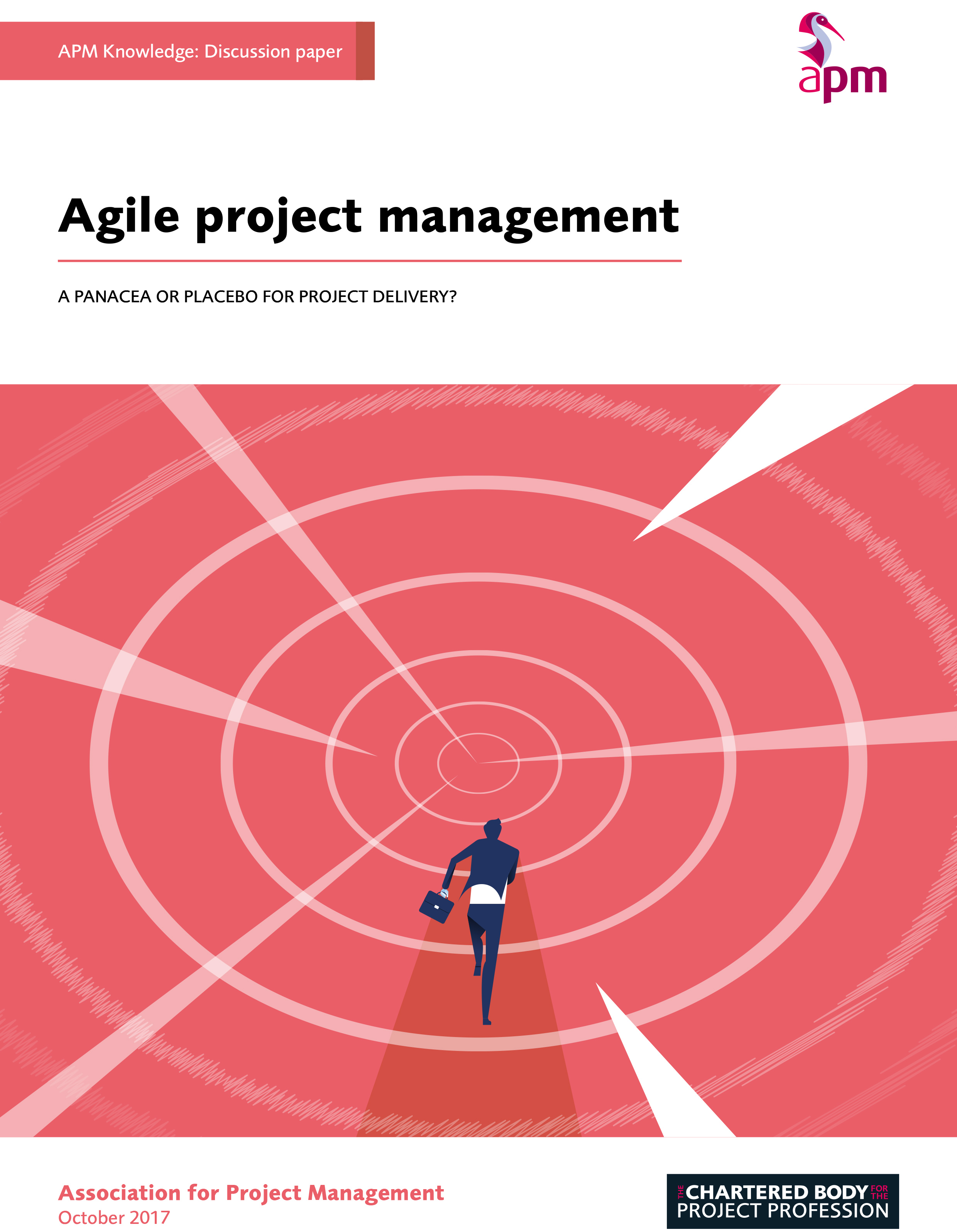Agile Summit paper released
The Association for Project Management (APM), the Chartered body for the project profession,  has published a paper on agile: "Agile project management: A panacea or placebo for project delivery", with the aim of increasing debate and resources on the topic. In July APM held an Agile Summit with its corporate partners, government bodies and key stakeholders to start the process of shaping APM’s position on agile project management in the wider context of professional project delivery.
has published a paper on agile: "Agile project management: A panacea or placebo for project delivery", with the aim of increasing debate and resources on the topic. In July APM held an Agile Summit with its corporate partners, government bodies and key stakeholders to start the process of shaping APM’s position on agile project management in the wider context of professional project delivery.
Stimulated by input from practitioners and interested parties from the wide range of sectors who attended the event, the report aims to lay out key themes that drew a consensus. The event sought to focus on agile project management applied other than to ‘pure’ software development, and this discussion paper deliberately avoids the use of agile taxonomy. The paper specifically looks at differences between a traditional (waterfall) approach and agile and the principles that govern these approaches. It also touches on what the challenges are, whether it works in the world of project delivery and how to make it a success.
The authors noted that agile is not a panacea – many are in fact practising its principles without knowing. Driving a project through to benefits realisation is an agile principle, which should also exist under traditional methodologies. Collaborative ways of working will always: improve benefits; speed up delivery, improve quality, satisfy stakeholders; and realise efficiencies. The consensus view was that there is little doubt that engaged stakeholders with a shared vision and commitment to success will benefit all projects. This paper looks in part at how project managers can achieve this.
All the examples shared at the event were of cases where agile project teams were assembled from inside the organisation concerned with internal clients. As the event was carried out under terms of full confidentiality, the specific detail of contributions is not being disclosed. We encourage all those interested in how agile might impact their work and business to use this document to help inform debate within their organisations and networks. We will also shortly be launching a new online agile resource. If you would like to contribute further to evolving this area of interest, please contact knowledge@apm.org.uk.

0 comments
Log in to post a comment, or create an account if you don't have one already.